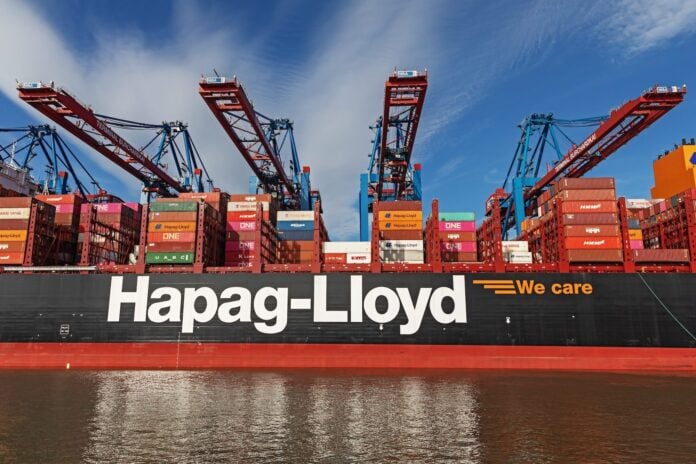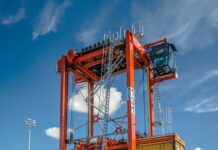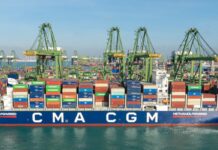
In a significant move to expand its fleet and enhance sustainability, Hapag-Lloyd has entered into contracts with two Chinese shipyards for the construction of 24 new container ships. This strategic investment, which totals approximately USD four billion, marks one of the largest in the company’s recent history.
Twelve of the new vessels, each with a capacity of 16,800 TEU, will be constructed by the Yangzijiang Shipbuilding Group. These ships are set to augment existing service capacities. The remaining twelve ships will be built by New Times Shipbuilding Company Ltd., each with a capacity of 9,200 TEU, and will replace older ships that are nearing the end of their service life this decade.
All newbuildings will feature advanced low-emission, high-pressure liquefied gas dual-fuel engines known for their fuel efficiency. Additionally, the ships will be capable of operating on biomethane, potentially reducing CO2e emissions by up to 95% when compared to traditional propulsion systems. Notably, these vessels will also be ammonia-ready, reflecting Hapag-Lloyd’s commitment to environmentally friendly shipping practices. Delivery of the new ships is scheduled between 2027 and 2029, bringing the total fleet capacity to an impressive 312,000 TEU.
Rolf Habben Jansen, CEO of Hapag-Lloyd AG, emphasized the significance of this investment, stating, “This investment represents a significant milestone for our company as we pursue the goals of our Strategy 2030, focusing on growth, modernization, and decarbonization of our fleet. Operating more efficient vessels will enhance our competitive position and allow us to continue providing our customers with a global, high-quality product.”
Hapag-Lloyd is committed to meeting the 1.5-degree target set by the Paris Agreement, aiming for a one-third reduction in absolute greenhouse gas emissions from its fleet operations by 2030, compared to 2022 levels. The company has set a long-term goal of achieving net-zero fleet operation by 2045. This ambitious plan includes investments in modern vessels, slow steaming practices, fleet modernization, and the adoption of new propulsion technologies and alternative fuels, providing customers with multiple green transport options.
Additionally, in a recent decision announced on April 16, Hapag-Lloyd revealed plans to retrofit five vessels for methanol propulsion, further illustrating its dedication to a multifuel future and its role in driving the decarbonization of the liner shipping industry.
Currently, Hapag-Lloyd operates 287 modern container ships, boasting a total transport capacity of 2.2 million TEU, making it one of the world’s leading liner shipping companies and the largest fleet operating under the German flag.
อัพเดตข่าวสารและบทความที่น่าสนใจในอุตสาหกรรมโลจิสติกส์ก่อนใคร ผ่าน Line Official Account @Logistics Mananger เพียงเพิ่มเราเป็นเพื่อน @Logistics Manager หรือคลิกที่นี่













